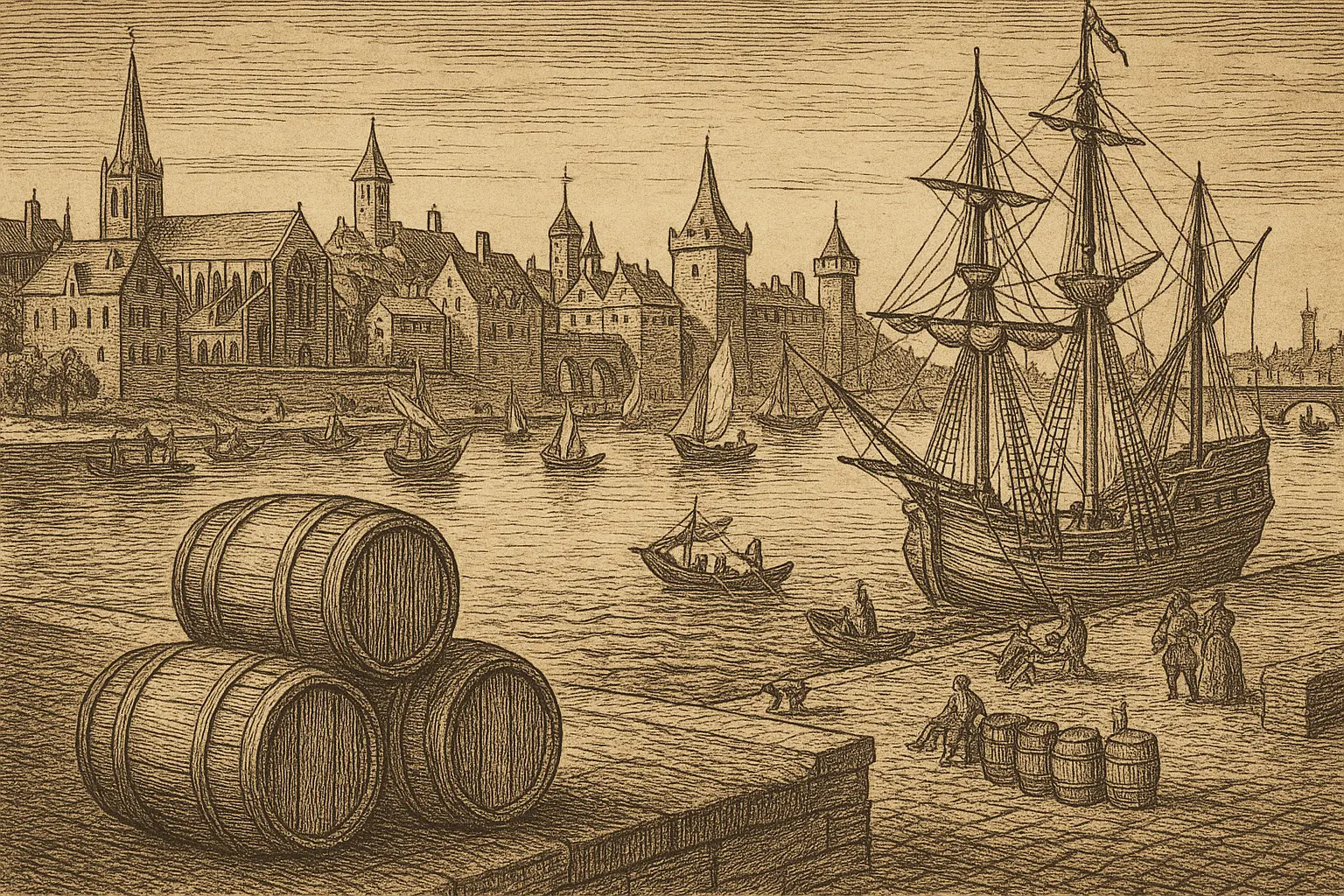The English history of Bordeaux is a surprising and often overlooked chapter in France’s past. Bordeaux, known for its wine, architecture, and rich French culture, hides an intriguing chapter in its history: its 300-year reign under English rule. This period, marked by political alliances, war, and cultural exchange, left a lasting impact on the region. But how did this unexpected English influence shape Bordeaux’s language, economy, and identity?
Bordeaux, the English city
Understanding the English history of Bordeaux helps explain many aspects of its language and architecture today. In this article, we will explore how a royal marriage turned Bordeaux into a strategic English stronghold, how English control affected local governance, and how the traces of this fascinating past are still visible in the French spoken here today. Let’s uncover the historical layers that make Bordeaux not just a French city, but a place shaped by centuries of English presence.
The strategic marriage that changed History
On the death of her father, Eleanor of Aquitaine inherited the independent Duchy of Aquitaine. Although technically under French royal authority, Aquitaine maintained significant autonomy. The dukes enjoyed local governance while owing military support, taxes, and fealty to the French king. Culturally and linguistically, Aquitaine differed from the rest of the kingdom — while elites could understand French for political affairs, the general population spoke Occitan.
Eleanor of Aquitaine married Louis VII of France in 1137. Their union suggested Aquitaine would return to the French Kingdom, as Louis VII became the French king. But they divorced in 1152, and Eleanor remarried the King of England, Henry II Plantagenet, just two months later, making him Duke of Aquitaine through marriage. Aquitaine became an English possession through this alliance, fueling tensions between the French and English kings who now rivaled each other for this strategic region.
This wasn’t the first time the English and French disputed territories. In 1066, William the Conqueror, Duke of Normandy, conquered England and became its king. This victory created a complex political situation: as Duke of Normandy, he remained a vassal to the French king, while simultaneously being sovereign in England. Louis VII reacted with hostility to losing Aquitaine, viewing it as a major strategic loss for France. His son, Philip Augustus (1180–1223), actively opposed the growing Plantagenet influence and managed to reclaim Normandy in 1204, along with other territories including Anjou, Maine, and Touraine. While these losses significantly diminished English power in France, Aquitaine remained under English control.
English control and the hundred years' war
The English control over Aquitaine gradually influenced the region’s administration, elites, and political practices. While Occitan remained the common language, the Anglo-Norman elite gradually influenced the Aquitaine nobility, who adopted Norman French over time.
The Hundred Years’ War (1337–1453), though not directly caused by Eleanor’s marriage to Henry II, stemmed from dynastic problems and territorial claims that had festered for generations. Edward III of England, grandson of Philip IV through his mother Isabella of France, claimed the French throne. When French lords rejected an English king and invoked Salic law to exclude inheritance through female lines, Philip of Valois took the throne. Edward III contested this decision, igniting open warfare.
Throughout the war, Aquitaine remained primarily under English control. In 1451, French forces captured Bordeaux, the capital of Aquitaine, though the English didn’t immediately abandon hope of regaining control. The Battle of Castillon in 1453 marked the definitive French reconquest of Aquitaine under Charles VII, ending English presence in both Aquitaine and France after three centuries.
Traces of the English history of Bordeaux : the enduring English legacy
The three centuries of English influence left a lasting mark on Aquitaine: the region was renamed Guyenne, and English laws, Anglo-Norman administration, and aspects of English culture were imposed. While locals continued speaking Occitan, the elite adopted Norman French and embraced Anglo-Norman cultural practices.
Bordeaux became a major commercial center for England, particularly through the wine trade. This commerce formed a solid foundation for the local economy during the centuries of English domination, with Aquitaine playing a key role in the English economy.
Perhaps most enduringly, the English influence on the French language remains visible today, with many French words related to commerce, maritime affairs, law, and warfare including:
gouvernement (government)
parlement (parliament)
échoppe (shop)
rempart (rampart)
duc (duke)
comté (county)
clergé (clergy)
contrat
sentence
héritage (heritage)
notaire (notary)
This linguistic legacy stands as a testament to how three centuries of English rule in Bordeaux and Aquitaine permanently shaped the French language and culture, creating a unique historical bridge between these two rival kingdoms. The English history of Bordeaux left traces not only in law and trade but also in everyday French vocabulary.
Bordeaux today: a legacy still alive
Bordeaux’s history as an English city might seem distant, but its impact is still visible today. From legal terms to wine trade routes, the legacy of English control has left its mark on the region. The language and cultural exchange between the French and English during this period shaped not only the region’s economy and governance but also the very language spoken here. It reminds us that languages, like cities, are shaped by movement, exchange, and unexpected alliances. For English speakers, it’s a reminder that French, while distinct, shares many familiar echoes of their own language, making it easier to understand.
Today, Bordeaux continues to reflect its rich and layered past—not only through its architecture and commerce but also in its language. If you want to explore these historical layers while improving your French, consider studying French in Bordeaux and view our intensive French workshops. There’s no better place to study French than a city where history and language truly come alive.
To learn more about the political and dynastic conflicts that defined this era, you can read this detailed article in French.




